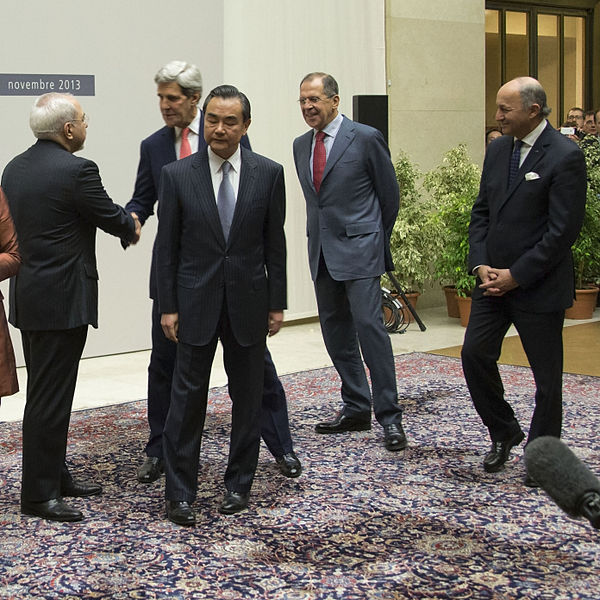Much is being said and written about the new agreement between Iran and the US, France, Russia, China, the UK and Germany which is supposed to halt Iran’s atomic weapons program. While the full details of the deal may not be known, it is nevertheless extremely pertinent to question and maybe track America’s logic in driving towards this agreement.
Much is being said and written about the new agreement between Iran and the US, France, Russia, China, the UK and Germany which is supposed to halt Iran’s atomic weapons program. While the full details of the deal may not be known, it is nevertheless extremely pertinent to question and maybe track America’s logic in driving towards this agreement.

With all due respect to European diplomacy, no deal would have been made without America’s active and sustained effort. So it makes sense to focus on the key question regarding this agreement: why the US labored so hard to achieve it.
Why the countless cross-Atlantic flights, late night negotiations, press conferences? Why the large scale, hectic diplomatic campaign? What American interests does a deal with the Iranians serve? How does legitimizing Iran promote America’s national security or standing in the world?
Trying to answer these very simple questions quickly leads to a dead end. It’s very clear what the Iranians stand to gain from Western legitimization: one cannot treat as an enemy a state which signs and honors international agreements with the world’s most prominent nations. Therefore, the deal effectively means Iran ceases to be a pariah state and rejoins the international community, with billions in cash and lots more in recognition guaranteed. But what does America gain by exonerating its self-declared archenemy?
Will Iran’s Revolutionary Guards now become a peacekeeping organization? Will the Islamic Republic’s myriad terrorist organizations renounce violence? Embrace democracy? Hate the West less? Not likely.
Furthermore, if the sanctions actually work, as many western leaders claim – shouldn’t the sanctions be made even fiercer so as to completely wreck any remaining Iranian appetite for destruction? Would the United States not have been better served by an Iran forced to ceremoniously surrender its nuclear program altogether? An Iran that is so desperate it does not dare pronounce the word combination “a right to enrich”?
Signing a deal now is tantamount to saying “I know I cannot win, but I’ll settle for a respectable draw,” which, in turn, suggests the US thinks of Iran as an opponent of equal strength. Letting Iran win the battle of propaganda this way – and it is a huge win for Iran to be seen as the US’ equal – is an act of deplorable diplomatic amateurishness.
To top that, the false narrative that the choice the west faced was between war and peace is severely misleading. For no one was talking of war: the choice was between legitimizing a nation that has spread terror throughout the Middle East and other parts of the world and has never abandoned its fanatic aspirations for world domination – and a continued sanctions regime.
Now the sanctions are being dropped with the mission critically unaccomplished. It is therefore hard to understand what America and the rest of the west is thinking. Yes, there will be grand talk of peace and opportunities, and many a bottle of Champagne will be uncorked in make-believe celebration, but for simpletons like us who are no politicians or press officers, just like the ordinary Iranian, Russian or Chinese citizen, it will seem like the United States of America has lost even a nominal belief in its moral, economic, cultural or military superiority, a nation that does not stand its ground even when no life has to be risked.
Traditionally, American foreign policy leveraged America’s influence and credibility into international arrangements which may have been uncomfortable for the local parties involved but which ultimately made America safer and more prosperous. With the new Iran agreement this process is turned on its head: America is exposing itself and its allies to potential harm in a way comfortable for its main enemy in order to gain influence and credibility. This is inconsistent with global leadership.
Compromising with your most hateful enemy in a time when you appear to be politically weakening is never, never going to be rewarded by less cunning, ambition or hate. Quite the opposite.




